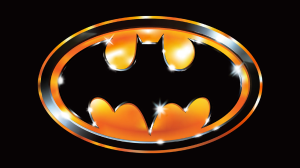When John Carpenter’s Halloween hit theaters in 1978 it changed the game for horror. In fact, it was primarily responsible for birthing an entire subgenre: the slasher. Sure, Peeping Tom, Psycho, and The Texas Chain Saw Massacre are given much credit for doing the same, but there’s something to be said about just how many slashers started pouring into theaters the first several years following the debut of Carpenter’s classic. Friday the 13th, Prom Night, The Burning, Sleepaway Camp, they wouldn’t exist without Halloween. Cut to 40 years later and David Gordon Green brought Michael Myers surging back to life with the first installment of a Halloween trilogy that, unfortunately, didn’t end up so hot.
Videos by ComicBook.com
Even still, the massive commercial and respectable critical success of Green’s movie once more opened a floodgate in the horror world. Specifically, the legacy sequel floodgate. Let’s go through which legacy sequels probably wouldn’t exist now had Green’s Michael Myers reboot failed.
What Lessons Did David Gordon Green’s Halloween Teach the Industry?
Halloween didn’t just signal to the industry that now was the time to reboot beloved horror IPs, it showed how to make them click with audiences. But before we get into how the film did this, let’s rewind to the few years before Green’s movie opened.
Remaking successful horror movies is nothing new, and it’s an approach that continues to this day. It was also very much present leading up to Halloween. In 2015 we got Poltergeist, 2016 had Cabin Fever, and 2017 gave us Flatliners and It.
Of those movies, only It was successful with critics or general audiences, and even then, it’s the only one that is arguably not a remake. If it is, it’s a remake of a miniseries. It’s more just a new adaptation of existing source material.
In that same span of three years there were also a few attempts to play with formula. In 2016 we got Blair Witch, which served as a sequel to the 1999 film. 2017 gave us Amityville: The Awakening, which operated in a reality where the original The Amityville Horror movie was just that, a movie.
So, what made Halloween, which is a direct sequel to Carpenter’s classic and Carpenter’s classic alone, a success? Like Blair Witch it continues the narrative of its original film but also strives to recapture that original’s spirit. That didn’t quite work for Blair Witch, but few can deny that Green captured the Fall season scares so integral to the Michael Myers saga.
But that wasn’t enough, as it also took the franchise in interesting new directions. It was both a long-awaited return of true Myers after Rob Zombie’s two gross and unpleasant stab-a-thons and an opportunity to see how an alive and well (no thanks to you, Halloween: Resurrection) Laurie Strode would fare if she had to face her terrorizer decades later. Now, that was done in Halloween H20: 20 Years Later, but the marketing for Green’s film sold their confrontation as what it ended up being: visceral and intense.
In short, the lesson learned was that horror IPs, even long dormant ones, can again prove successful for a new generation. There just has to still be relevance of and love for the IP as well as a movie that feels like a step forward while also having a firm grasp on the past.
Which Movies Did David Gordon Green’s Halloween Inspire?
In 2019, a year after Halloween, the remake of Child’s Play hit theaters with a whimper. And, while it’s a remake, one must imagine that Myers’ success was at least a factor in deciding to wipe the dust off of Chucky for the big screen (he did much better on the direct to video market with Curse of Chucky in 2013 and Cult of Chucky in 2017).
Then, in 2020, there was the soft reboot of The Grudge and the fantastic new take on The Invisible Man. Like with Child’s Play, those two don’t follow the 2018 Halloween‘s playbook, but they likely wouldn’t have come into existence without Myers’ success.
In 2021, however, we got a movie that did follow the legacy sequel model: Candyman. And, while divisive, it was an ambitious and admirable film, just like the original, whose events it follows way down the line. There was also Slumber Party Massacre, which went under the radar but was also a sequel to just the original The Slumber Party Massacre. In other words, 2021 was the year where we saw that Myers had again done for the horror industry what he did in 1978 and what Ghostface did in 1996: ignite a spark.
Cut to 2022, the same year the Myers saga went to sleep once more with Halloween Ends, and horror fans saw many favorite IPs resurrected. Hellraiser and Jeepers Creepers: Reborn were more legacy reimaginings than legacy sequels and both Orphan: First Kill and Prey were legacy prequels instead of legacy sequels, but the reboot slash lore expansion notion was still very much present.
But 2022 was also the year when the biggest post-Halloween legacy sequel success debuted. Not the dreadful Netflix continuation of the Leatherface saga via Texas Chainsaw Massacre, but rather Radio Silence’s Scream. Jasmin Savoy Brown’s Mindy Meeks-Martin even enthusiastically tells her friends about how they are currently in the reboot sequel era.
Since Scream we have also seen the Evil Dead franchise resurrected, the Pet Sematary series revived, and the Saw saga capped off with a prequel. Things didn’t work out so well for Green when he tried to bring back The Exorcist, but Fede Álvarez scored a win with Alien: Romulus, Tim Burton made a blockbuster with Beetlejuice Beetlejuice, and even the Ghostbusters have been able to catch spirits two more times. Furthermore, while Renny Harlin’s The Strangers trilogy is zero for two thus far, Arkasha Stevenson’s The First Omen proved that a legacy lore expansion can be nearly as powerful as the franchise’s originator.
The question is, has Hollywood run out of big franchises to bring back from the dead? In short, not quite. And as 2025 has revealed, the industry is not yet done with this practice.
Danny Boyle’s 28 Years Later has proved to be a bit divisive, but it was an admirably off kilter way to bring back the zombie saga he kicked off back in the early 2000s with 28 Days Later. Final Destination Bloodlines was an even bigger success, and like a few of the aforementioned legacy lore expansions, it went to the past, and quite well at that.
However, I Know What You Did Last Summer was a somewhat surprising whiff with audiences. It pretty much followed the 2022 Scream‘s playbook page by page, yet critics and audiences couldn’t have cared less. On one hand, I Know What You Did Last Summer was never as beloved as Scream, but on the other hand it probably should have done a little better if we’re to think the legacy continuation path hasn’t run its course. Either it’s a warning sign or first weekend audiences told others about its highly controversial ending.
For now, though, we still have a few of these legacy continuations on the way. By the end of the year the Killer Tomatoes will roll once more with Attack of the Killer Tomatoes: Organic Intelligence and, on the slightly more reputable side of things, there’s December’s one-two punch of the Silent Night, Deadly Night remake (featuring Halloween Ends‘ Rohan Campbell) and Anaconda, which is a highly meta sequel in which 1997’s Anaconda is as much a movie as it is here in our reality.
As for 2026, we have 28 Years Later: The Bone Temple, Evil Dead Burn, Scream 7, and possibly Mike Flanagan’s attempt to pull of what Green could not. Specifically, have his take on The Exorcist make the audience’s heads spin with a smile. There is also a new Christine, Chucky, Night of the Comet, and Pumpkinhead on the (perhaps distant) future docket, but we’ll cross those scary bridges when we get there. Jason Voorhees is also back, having made his Jason Universe debut in the short film Sweet Revenge, but we’ll have to see if he makes his way to the big screen anytime soon. In other words, it seems as though Halloween kicked off something that will last a full decade or more. Let’s just keep our fingers crossed for a final Robert Englund fronted A Nightmare on Elm Street somewhere in there.









